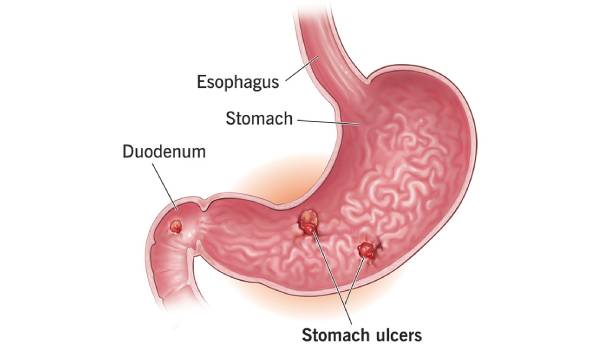Stomach Ulcers
- Home
- / Dr. Raosaheb Rathod

Dr. Raosaheb Rathod
M.B.B.S, M. D. (Medicine), D.M. (Gastroenterology)
Book Appointment

Stomach Ulcers
Stomach ulcers, also known as gastric ulcers, are open sores that develop on the lining of the stomach. These ulcers can also occur in the upper part of the small intestine (duodenum) and are then referred to as duodenal ulcers. They typically form when the protective layer of mucus that lines the stomach and duodenum is compromised, allowing stomach acid to erode the underlying tissue. The primary cause of stomach ulcers is infection with Helicobacter pylori (H. pylori) bacteria or the long-term use of nonsteroidal anti-inflammatory drugs (NSAIDs) such as ibuprofen or aspirin.
Symptoms of stomach ulcers may include burning stomach pain, bloating, burping, nausea, and vomiting. Some individuals may experience more severe symptoms such as bleeding, which can lead to bloody or black stools, or vomiting blood.
Diagnosis of stomach ulcers typically involves an upper endoscopy (gastroscopy), where a flexible tube with a camera is inserted through the mouth to examine the stomach and duodenum. Treatment options depend on the cause and severity of the ulcer but often include antibiotics to eradicate H. pylori infection, medications to reduce stomach acid production (like proton pump inhibitors or H2 blockers), and lifestyle changes to avoid triggers such as smoking, alcohol, and NSAIDs.
Complications of untreated stomach ulcers can include internal bleeding, perforation of the stomach lining, and in rare cases, stomach cancer. Therefore, early detection and proper treatment are essential to heal the ulcer, relieve symptoms, and prevent complications.
